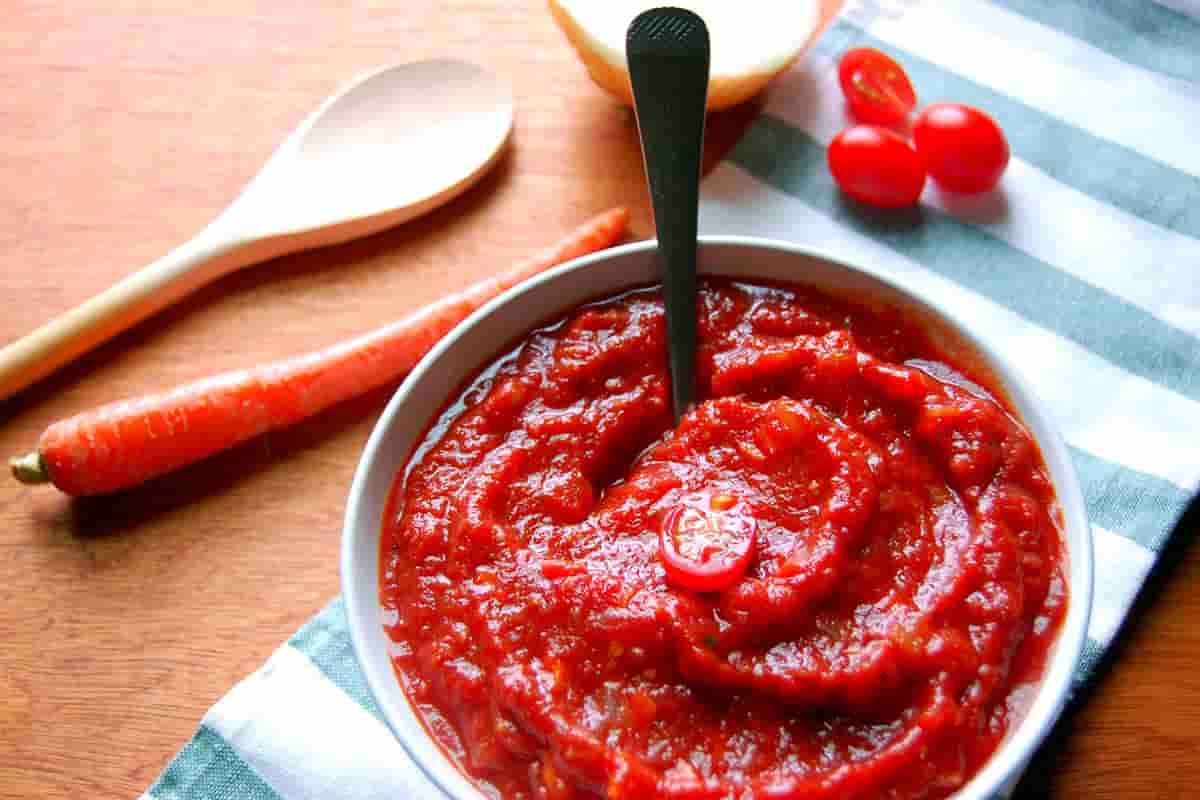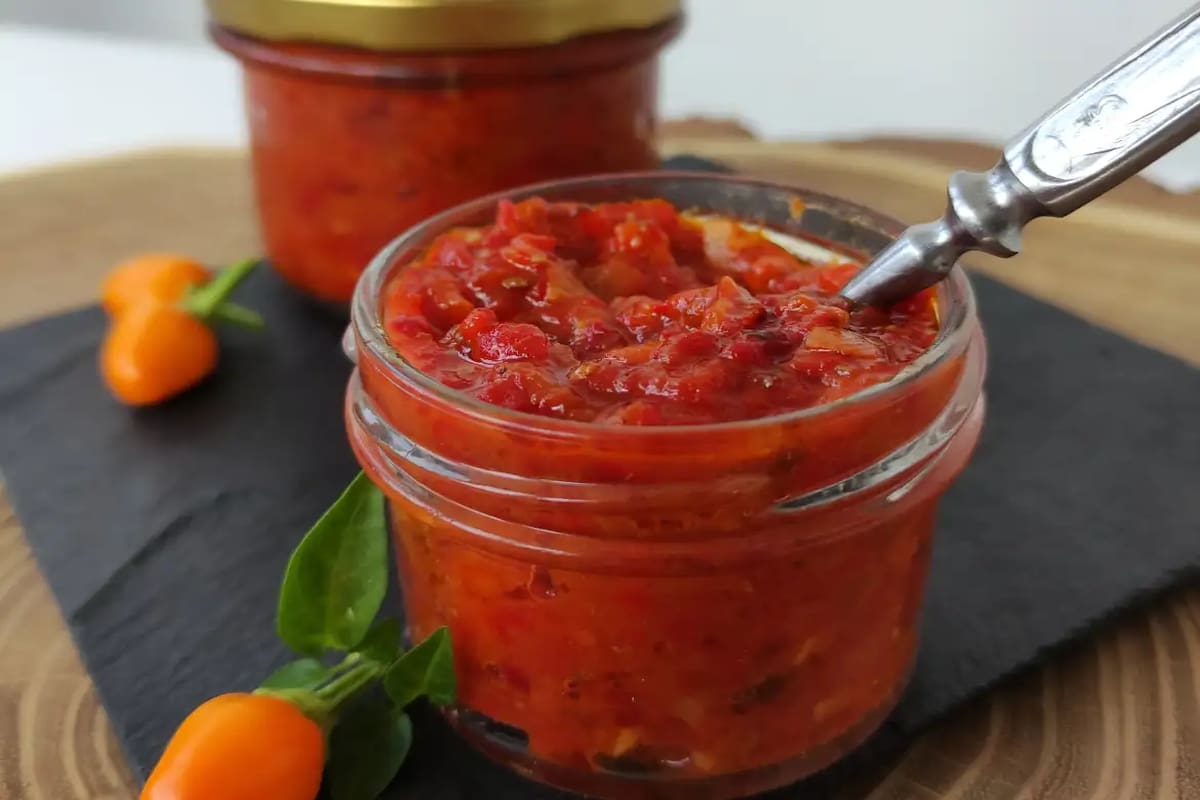As a person who cares about his diet, you need to figure out the amount of carbs in various tomato-based products like tomato paste. Subsequently, we are going to provide you with some other important and fruitful nutrition facts about the mentioned products.
Tomato paste can be included on a diet low in carbohydrates, such as the ketogenic diet, because it has a carbohydrate content that is only moderately high per serving.
Because this quantity would be used in a whole pot of soup, stew, chili, or sauce, it is acceptable to add a few tablespoons to your recipes or even a small can of the ingredient. Only a small portion of the total carbohydrate content would be found in each serving.
For instance, if you wanted to create a whole pot of soup with enough for 8 servings, you might use a whole can of tomato paste that has 32 grams of carbohydrates in it.
After the carbohydrates have been distributed, each bowl will only produce a little more than 4 grams of net carbs, which is perfectly acceptable on the ketogenic diet. (The overall amount of net carbohydrates is also decreased due to the presence of fiber in tomato paste.)
What is the Carbohydrate Content of Tomato Paste?
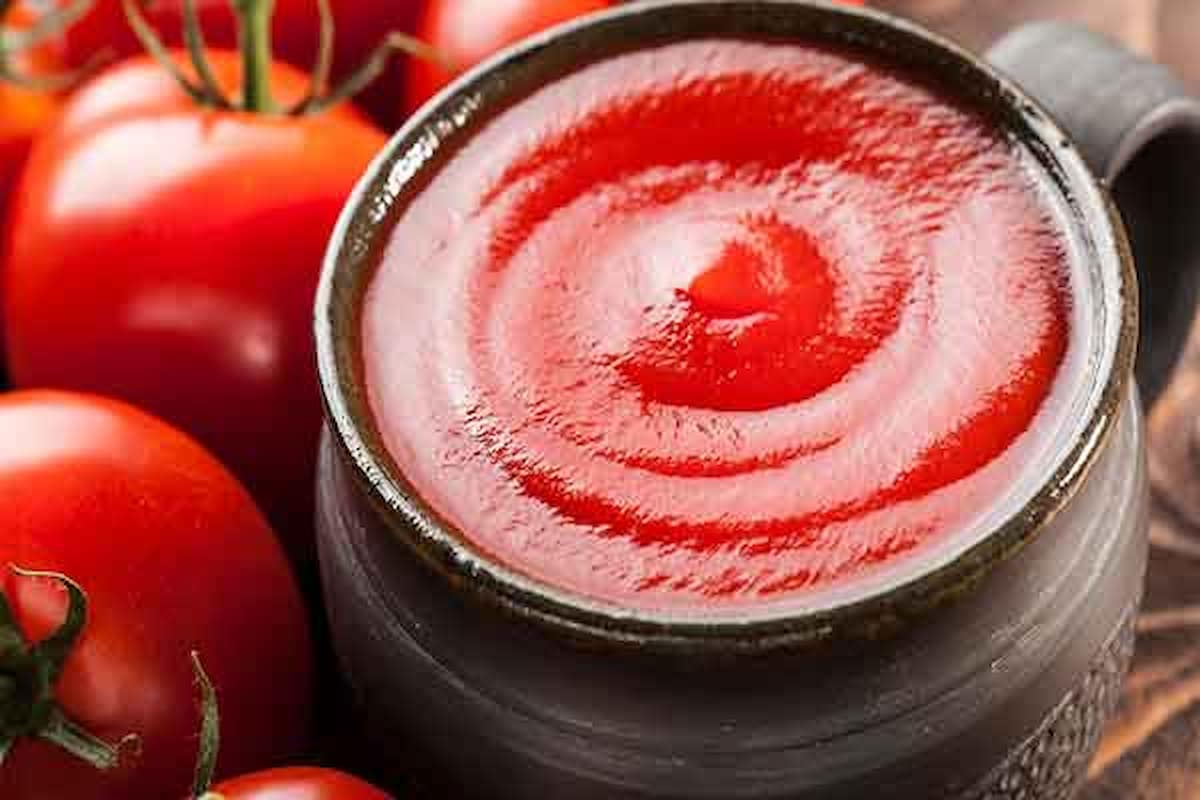
There are three grams of carbohydrates in one spoonful of tomato paste.
There are 19 grams of carbohydrates in a serving size of tomato paste that is 100 grams.
There are 32 grams of carbohydrates in one can of tomato paste that is 6 ounces in size.
How Many of Your Daily Calories Does Tomato Paste Have?
The amount of calories that are in one spoonful of tomato paste is 18.
There are 82 calories in a serving size of tomato paste that is 100 grams.
There are 139 calories in one can of tomato paste that is 6 ounces in size.
What exactly is tomato paste, though?
Tomato paste is a thick and concentrated paste that is formed by cooking tomatoes down for a long period of time in order to remove most of the water from the tomatoes.
After removing the seeds and skins, the tomatoes go through a second round of cooking to further reduce their volume, at which point you are left with a thick, concentrated paste. A lot of meals are improved by the addition of tomato paste, and when caramelized, it contributes a flavor that is both delicious and hearty.
The presence of a wide variety of minerals, vitamins, and fats in tomato paste makes it an excellent source of nourishment for a number of reasons. According to a number of studies, cooked tomato products such as tomato paste have significantly increased levels of lycopene.
Lycopene is an essential antioxidant that is well-known for its cancer-preventative properties.
In addition, lycopene protects the skin from the damaging effects of ultraviolet light. Carotenoids, which protect the heart and help promote healthy skin, are abundant in tomato paste, making it an excellent choice for skin care.
containing a lot of antioxidants:
The process of stewing tomato paste enhances the amount of lycopene that is present and helps your body better absorb the key antioxidant components it contains. Lycopene is an antioxidant that helps prevent cancer and reduces the risk of inflammatory illnesses, including prostate cancer.

Benefits for Skin:
Tomato paste has a number of health benefits, one of which is its remarkable capacity to reduce the risk of sunburn by more than 40 percent. This is because tomato paste contains a number of carotenoids, one of which is lycopene.
High cholesterol consists of:
Tomato paste contains a high concentration of carotenoids, which have been shown to improve heart health by lowering levels of LDL cholesterol, sometimes known as “bad cholesterol,” in the body. Carotenoids are also effective in preventing the oxidation of cholesterol, which is a factor in the production of plaque and the hardening of arteries. Regular consumption of tomato paste has been shown to improve blood pressure. This helps ensure that blood is flowing properly and lowers the chance of having a heart attack or stroke.
Minerals found in one hundred grams of tomato paste are as follows:
Calcium 36 milligrams
Iron 2.98 milligrams
Magnesium 42 milligrams
83 milligrams worth of phosphorus
Potassium 1014 milligrams
Sodium 59 milligrams
Zinc 0.63 milligrams
Vitamins included in one hundred grams of tomato paste are as follows:
Vitamin C, total ascorbic acid 21.9 milligrams
Thiamin, 0.06% of the daily value
Riboflavin 0.153 milligrams
Niacin in milligram form: 3.076
Vitamin B-6 0.216 milligrams
12 micrograms of Folate, DFE
Vitamin A, RAE 76 µg
Vitamin A, IU 1525 IU
4.3 milligrams of vitamin E (also known as alpha-tocopherol)
Vitamin K (phylloquinone) 11.4 micrograms
Tomato paste has the following lipids per 100 grams:
Total amount of saturated fatty acids, 0.1 grams
Total monounsaturated fatty acids amounting to 0.067 grams
0.16 grams of total polyunsaturated fatty acids in fatty acids
Various Applications in the Kitchen
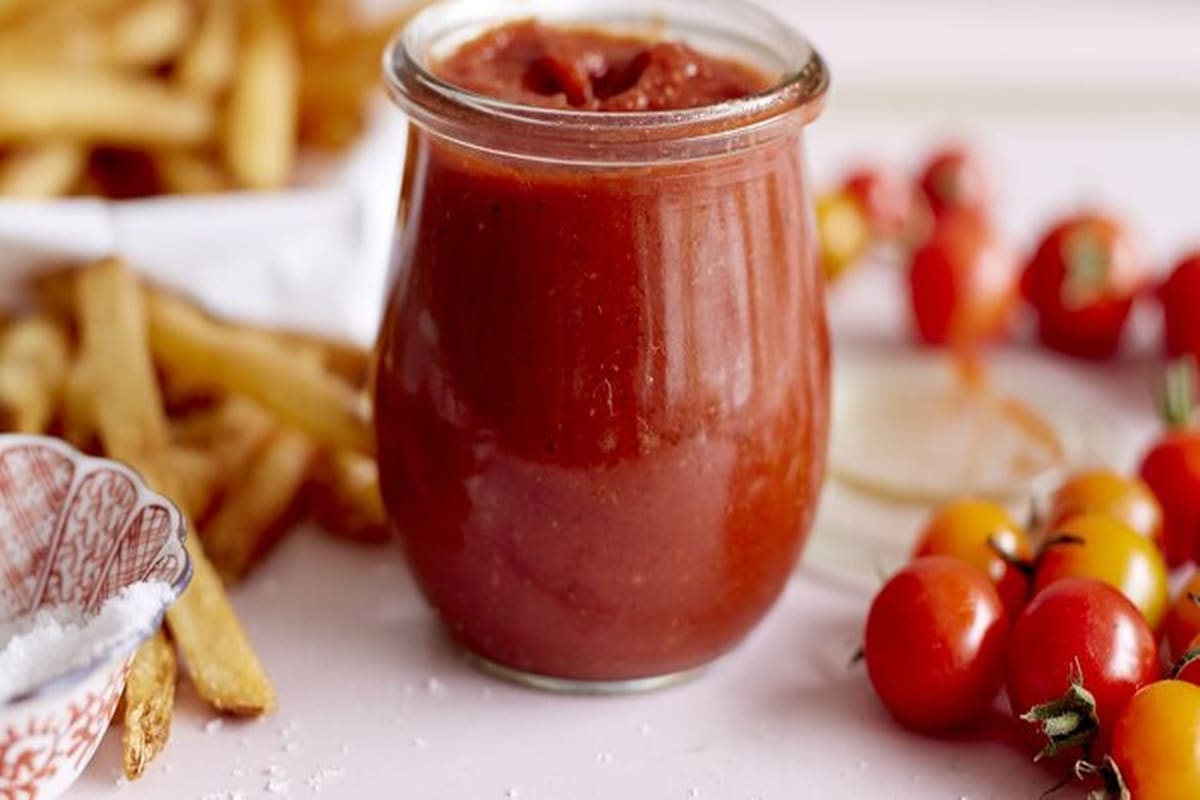
If you want the best results, cook your tomato paste on the stove so that it can caramelize. This will significantly improve the flavor of the tomato paste. After you have sautéed the aromatics, such as garlic, onion, and herbs, add it to the meals that you are preparing.
Caramelization of the tomato paste, which results in a darker color and richer flavor, can be achieved in just a few of minutes. If you add your tomato paste too soon, it may cause it to burn, so keep a close eye on it as it browns to prevent this from happening.
Tomato paste is an ingredient that can be used to make a variety of recipes, including the following:
Make your own homemade ketchup with less sugar by using tomato paste.
Make use of it in stews and soups.
To make tomato sauces for pasta, use it to help thicken the sauce.
Give casseroles and meatloaves more of a substantial texture.
Make a marinade out of it with meat.
Combine tomato paste, olive oil, and oregano for a reduced sugar pizza sauce.
Tomatoes themselves are edible, but the leaf of the tomato plant should never be consumed by a human being. In high quantities, tomato leaves can cause poisoning. Tomato leaf toxicity can cause severe tongue and throat irritation, as well as vomiting, diarrhea, dizziness, headache, moderate spasms, and even death in the most severe cases. Never put tomato leaves in your mouth.
In the levels that are typically consumed in food, tomatoes are not harmful to nursing mothers or pregnant women.
There is Fiber Found in Tomato Paste
One hundred grams of tomato paste contains four grams of different types of dietary fiber.
Tomato paste contains sugar.
There are 12 grams of sugar in every one hundred grams of tomato paste.
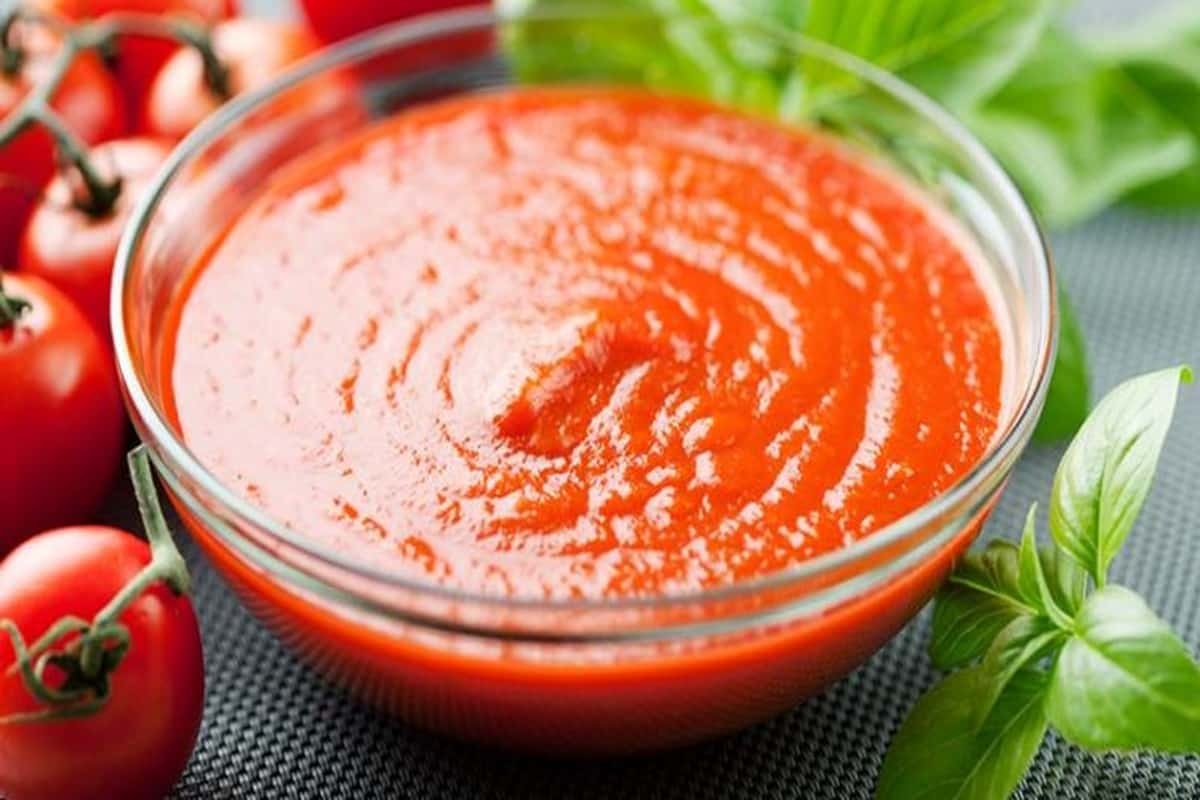
Tomato Paste Alternatives
In the event that you do not have a can of tomato paste in your pantry, you can enhance the flavor of your recipes by substituting any of the following ingredients for the tomato paste:
Tomato sauce or purée
Tomato juice
Tomato soup
Tomatoes packed in a can
Vine-ripened tomatoes
Ketchup
Red pepper paste
Tomato salsa
The well-known brand Hunts guarantees that all of its processed tomato products, such as tomato paste, pasta sauces, and pizza sauces, are gluten-free since they contain fewer than 20 parts per million of gluten. Some manufacturers may use wheat flour as a thickening in their products; therefore, you should always check the label first to ensure that neither wheat nor flour has been added.
Is Tomato Paste Vegan?
Yes, tomato paste is completely cruelty-free and does not include any ingredients derived from animals. However, just like with the vast majority of meals, there could be differences across brands. Before you buy tomato paste or sauce, you should always check the ingredient list on the label to be sure that the product does not include any animal products.



